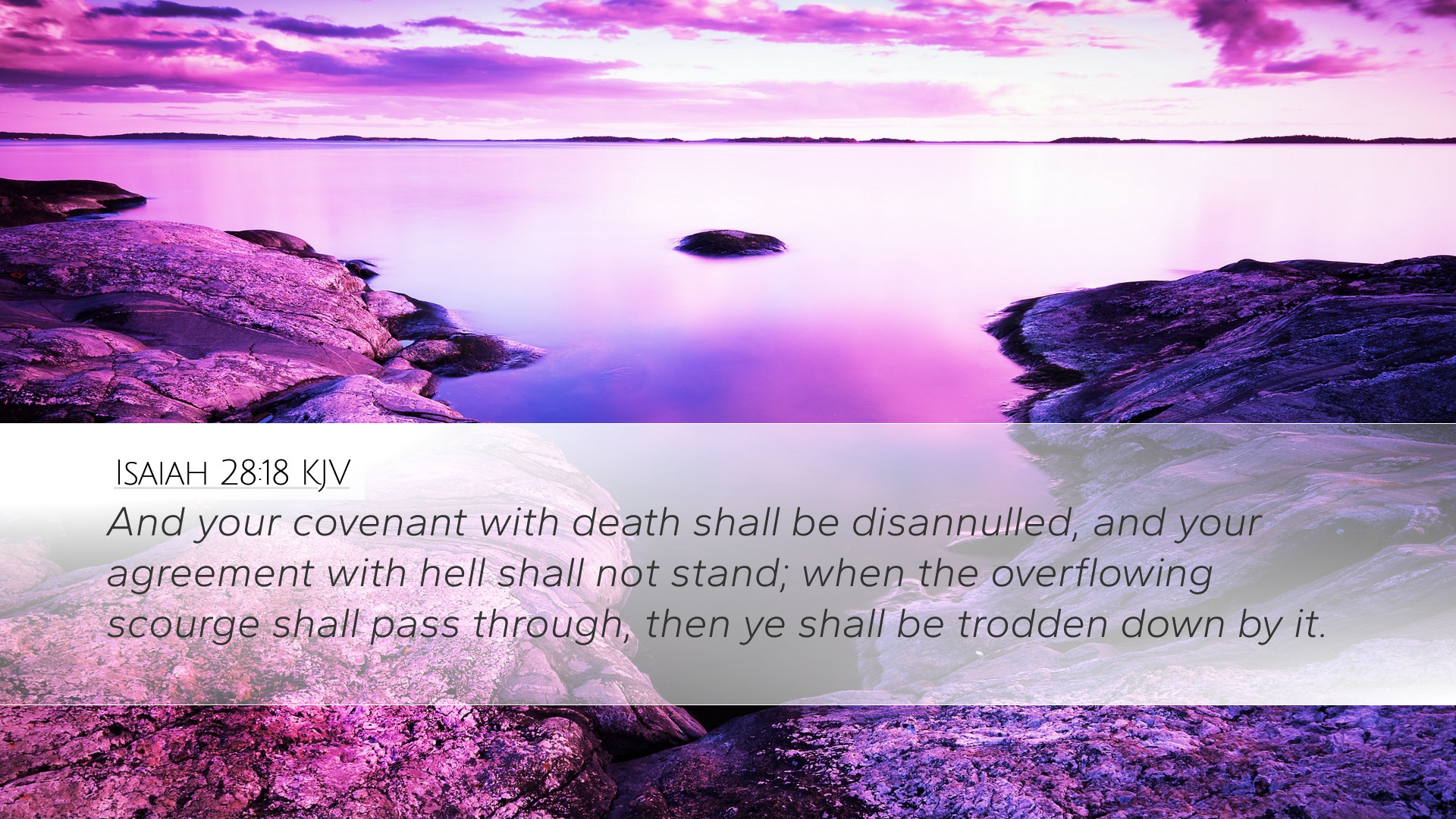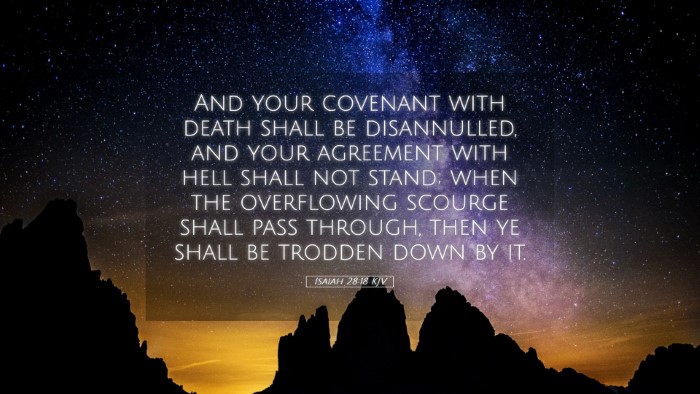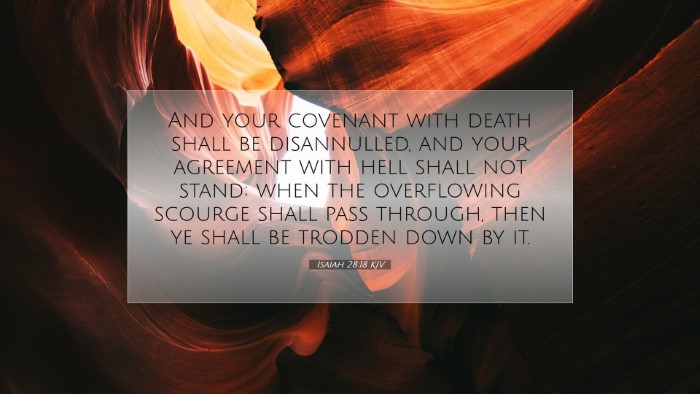Commentary on Isaiah 28:18
Isaiah 28:18 states, "And your covenant with death shall be disannulled, and your agreement with hell shall not stand; when the overflowing scourge shall pass through, then ye shall be trodden down by it." This verse speaks to the consequences of Israel's reliance on worldly alliances and their attempts to secure safety through a covenant with death and hell.
Contextual Overview
The passage is situated within a broader discourse regarding the judgment and restoration of Israel. The chosen people had sought refuge in their own agreements and in the shadow of foreign powers rather than placing their trust in God. This commentary will draw from the insights of Matthew Henry, Albert Barnes, and Adam Clarke to elucidate the profound implications of this verse.
Understanding the Covenant with Death
Henry notes that the "covenant with death" symbolizes their false security and misguided trust in their own schemes, facilitating a spiritual numbness to the divine will. They believed they could enter into agreements that would spare them from judgment, reflecting a reliance on human wisdom rather than divine providence.
Spiritual Implications
Both Barnes and Clarke emphasize that this covenant represents a spiritual death—a separation from true life that comes from God. Those who align themselves with worldly powers without seeking God place themselves under a false illusion of safety that will ultimately lead to their destruction.
The Disannulment of the Covenant
The phrase "shall be disannulled" is significant. It indicates a future tense of divine intervention; God will act to nullify these agreements. Henry posits that no matter how fortified one's efforts appear, they will ultimately not stand against God's judgment. This assures us that human plans will be dismantled when they are contrary to divine will.
Implications for Leadership
This verse serves as a cautionary tale for leaders, both ecclesiastical and secular. Leaders who forge covenants and alliances that disregard God's counsel set themselves and their people on a perilous path. Barnes highlights that reliance on any form of spiritual or political death is a profound miscalculation that invites disaster.
The Overflowing Scourge
The "overflowing scourge" represents the impending judgment. Clarke describes this as a sweeping judgment that will trample over those who thought themselves secure. It acts as a metaphor for the invincibility of God's judgment truth against human arrogance. Their expectations of winning were met with despair when faced with the reality of God's impending judgment.
Judgment and Mercy
This verse invites reflection on both judgment and mercy. While the judgment is certain, it is also an opportunity for repentance. The prophet lamented over the Israelite's choices, urging them to turn back to God. The call to repentance is resounding: to abandon reliance on false security and return to the covenantal relationship with God.
Practical Applications
For modern readers—pastors, theologians, and believers—this verse encourages self-examination regarding dependencies on contemporary forms of "death" and "hell," which may include materialism, secularism, or moral compromises. It challenges the church to reaffirm its trust in God alone rather than in cultural or political alliances.
A Call to Reflection
- Assessing Dependencies: Identify areas where the church or individual believers may rely on modern equivalents of human schemes for safety and security.
- Listening to Prophetic Voices: Heed warnings from God's Word and current spiritual leaders who call for a return to faithfulness.
- Engaging in Active Repentance: Encourage repentance not just as a one-time act but as a continuous alignment of the heart towards God.
Conclusion
Isaiah 28:18 serves as a sobering reminder of the futility of seeking refuge outside of God's will. Through the insights derived from esteemed commentators, we appreciate this verse as not merely historical but as an ongoing call for faithfulness. Each believer and church community must evaluate their commitments and ensure they stand rooted in a relationship with God rather than schemes that stand in contrast to His purposes. Thus, the prophetic voice of Isaiah reverberates through time, urging continual reliance on divine promises and assurance.


